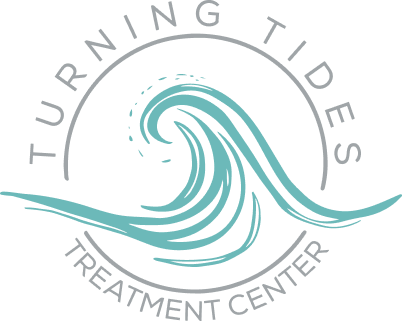Understanding the
Benzodiazepine Withdrawal Timeline
Navigating the journey through benzodiazepine withdrawal syndrome can be daunting. This comprehensive guide is designed to illuminate the pathway to recovery, providing valuable insights into the timeline of withdrawal from benzodiazepines. By understanding the stages and what lies ahead, individuals and their support networks can better prepare for the challenges and triumphs of the journey towards freedom from dependence.
What Are Benzodiazepines?
Benzodiazepines, colloquially known as “benzos,” serve as a cornerstone in the treatment of anxiety, insomnia, and various other medical conditions, thanks to their sedative-hypnotic properties. However, their blessing is a double-edged sword; efficacy in the short term contrasts sharply with the risk of substance use disorders, dependency, and withdrawal challenges in the long term. One study reports that in 2017, there were 11,537 overdose fatalities involving benzos. Another study reported that 17.5% of people who take benzodiazepines are misusing them. Benzodiazepine dependency not only affects the body but also has serious side effects on mental health, requiring a delicate and informed approach to discontinuation.
Understanding the Benzodiazepine Withdrawal Timeline
The benzodiazepine withdrawal timeline is marked by three distinct phases: early withdrawal, acute withdrawal, and protracted withdrawal. Each withdrawal period ushers in its own set of symptoms, presenting hurdles that require strength and resilience to overcome.
Early Withdrawal Phase
The early withdrawal phase marks the beginning of the body’s journey to rid itself of its dependency on benzodiazepines. This phase can start as early as a few hours to a day after the last dose and typically lasts for several days. During this time, the body starts to experience the absence of the drug it has grown accustomed to, leading to a range of symptoms that signal the onset of withdrawal.
Symptoms experienced during the early withdrawal phase can vary in intensity and nature but commonly include anxiety, insomnia, restlessness, increased heart rate, and sweating. These symptoms are the body’s initial reaction to the absence of benzodiazepines, a class of drugs that has a calming effect on the nervous system. As such, the body, in its state of adjustment, may also manifest physical symptoms like muscle stiffness and headaches, alongside psychological symptoms such as anxiety and panic attacks.
This phase is critical because it is the body’s first test of resilience without the drug. The severity of symptoms can depend on several factors, including the type of benzodiazepine used, the dosage, and the duration of use. Short-acting benzodiazepines tend to produce more immediate and sometimes more intense withdrawal symptoms than longer-acting types.
Despite the discomfort, the early withdrawal phase is a vital step in the recovery process. It signifies the body’s effort to re-establish normal functioning without the influence of benzodiazepines. With appropriate medical supervision and support, individuals can navigate this phase with strategies to manage symptoms, such as medication to alleviate discomfort, counseling, and support groups.
Acute Withdrawal Phase
Following the early withdrawal phase, individuals enter the acute withdrawal phase, which can last from a few days to several weeks. An escalation in both the intensity and variety of symptoms experienced characterizes this phase. It’s during this time that individuals may face the peak of withdrawal challenges, requiring significant support and sometimes medical intervention.
The symptoms of acute withdrawal extend beyond those of the early phase, including severe anxiety, depression, physical tremors, dizziness, sensory hypersensitivity, and in some cases, seizures. The psychological impact can be profound, with individuals experiencing mood swings, irritability, and even hallucinations or psychotic episodes in severe cases.
The acute withdrawal phase is often the most challenging part of the recovery journey, as individuals must cope with significant physical discomfort and emotional distress. The risk of seizures and other severe symptoms makes medical supervision crucial during this time. Treatment may include the use of medications to mitigate withdrawal symptoms, alongside psychological support and therapies designed to help individuals cope with the emotional and mental health challenges that arise.
This phase demands a robust support system, both medically and socially, as individuals work through the most intense withdrawal symptoms. Rehabilitation programs and support groups become invaluable resources, offering a blend of medical care, counseling, and peer support that is critical for navigating this difficult stage.
Protracted Withdrawal Phase
The protracted withdrawal phase, also known as post-acute withdrawal syndrome (PAWS), represents a prolonged period of adjustment that some individuals face after the acute phase of benzodiazepine withdrawal. This phase can last for months or even years, with symptoms that ebb and flow in intensity over time.
Symptoms during the protracted withdrawal phase are often more psychological than physical, including chronic anxiety, depression, ongoing insomnia, cognitive impairments (such as difficulty concentrating and memory problems), and a persistent sense of unwellness. Unlike the acute phase, where symptoms are more intense and physically manifest, the protracted phase involves a subtler, yet persistent, impact on an individual’s mental health and quality of life.
The unpredictability of symptoms in the protracted phase can be particularly challenging. Individuals may experience periods of relative stability followed by sudden, unexpected waves of withdrawal symptoms, often triggered by stress or changes in their environment. This can make recovery seem like a relentless cycle of progress and setbacks.
Managing protracted withdrawal requires a comprehensive, long-term approach that includes ongoing psychological support, lifestyle adjustments to promote overall health and well-being, and strategies for managing stress and triggers. Continued participation in therapy and support groups can provide individuals with the tools and community support needed to navigate this phase successfully.
Understanding the long-term nature of the protracted withdrawal phase helps individuals and their support networks prepare for a recovery journey that may require sustained effort and resilience. Despite the challenges, with the right support and strategies, individuals can continue to make progress toward recovery and reclaim their health and well-being.

Strategies for Managing Relapse Risks
Developing a relapse prevention plan is a critical step in sustaining recovery. This includes identifying triggers, establishing healthy coping mechanisms, and maintaining supportive relationships to reinforce the recovery journey’s progress.
The Role of Comprehensive Treatment
Successful withdrawal management relies on a comprehensive treatment plan that addresses both the physical and psychological facets of addiction. Rehabilitation facilities and treatment centers like Turning Tides Treatment Center in Irvine, California offer a sanctuary for healing, providing medical detox, inpatient, and dual diagnosis services to support recovery at every stage.
Personalized Care and Medication Management
The journey through benzo withdrawal emphasizes the importance of a personalized approach, particularly in medication management. Tapering under medical supervision allows for a controlled reduction in benzodiazepine dosage, utilizing medications such as Valium, Xanax, Ativan, and Klonopin to mitigate withdrawal symptoms effectively. Healthcare providers play an essential role in devising these tapering schedules, ensuring safety, and reducing the risk of severe withdrawal symptoms.
The Importance of Support Systems
A robust support system, including the involvement of loved ones and participation in support groups, is invaluable for those navigating the withdrawal process. These support networks provide emotional encouragement and a sense of community essential for overcoming the challenges of withdrawal.
Benzodiazepine Detox in Orange County FAQs
The onset of withdrawal often announces itself through symptoms of anxiety and insomnia, coupled with physical manifestations such as restlessness and palpitations. These early signs signal the body's reaction to the absence of benzodiazepines, marking the beginning of the withdrawal process.
The duration of the acute withdrawal phase can vary significantly, from a week to several weeks, influenced by the individual's usage history, dosage, and health condition. This period is marked by an escalation in symptom intensity, requiring patience and, often, medical intervention.
While managing mild withdrawal symptoms at home is possible with careful planning and support, severe symptoms, including seizures, necessitate consultation with healthcare professionals. A medically supervised detox provides a safety net for managing more severe symptoms effectively.
Long-term use of benzodiazepines can lead to cognitive impairments, dependency, and discontinuation challenges. The significant psychological and physical toll highlights the importance of adhering to medical guidance and exploring alternative treatments when feasible.
Support can be found through medical professionals specializing in addiction, rehabilitation programs, and support groups. Online resources and local health services also offer valuable guidance and support networks to assist throughout the withdrawal process.
Overcome Benzodiazepine Addiction in Orange County
Embarking on the journey to overcome benzodiazepine dependence is a courageous step toward reclaiming freedom and health. With the right support, information, and strategies, individuals can navigate the complex withdrawal timeline toward a successful recovery.
If you or a loved one are struggling with benzodiazepine addiction and looking for a substance abuse treatment facility, get in touch with Turning Tides Treatment Center. Our drug rehab facility and detox center are dedicated to providing individuals struggling with addiction a supportive environment to overcome the challenges of addiction and detoxification.
Clinically Reviewed by:

Matthew is a licensed marriage and family therapist and clinical supervisor in Orange County, California. Matthew has an extensive history working with the substance abuse and mental health population and is committed to client care with an ethical approach to treatment. Matthew utilizes a solution-focused, cognitive behavioral approach to therapy. He emphasizes the importance of creating a recovery environment which supports deep and meaningful sober connection, a system of accountability, daily structure and healthy routine, and an aftercare plan which will support continued sobriety post-treatment.
